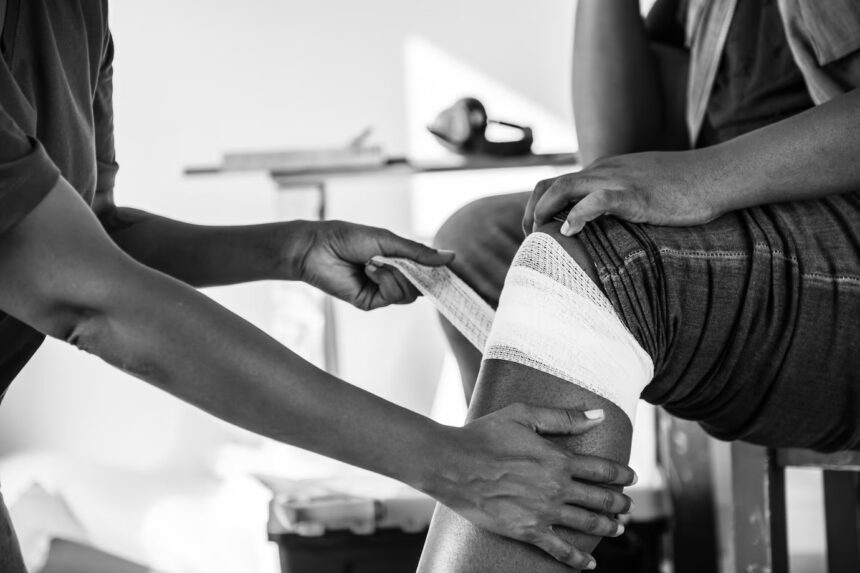Accidental injuries are a significant public health concern in South Africa, causing substantial morbidity and mortality. From road accidents to falls, burns, and poisoning incidents, many accidental injuries can be prevented through awareness, education, and adopting proactive safety measures. In this article, we will discuss important strategies and tips for preventing accidental injuries in South Africa, empowering individuals to prioritize safety and protect themselves and their communities.
- Road Safety:
Road accidents are a leading cause of accidental injuries in South Africa. To prevent road-related injuries:
- Always obey traffic rules, including speed limits, traffic signals, and road signs.
- Buckle up and ensure all passengers wear seatbelts in vehicles.
- Never drink and drive or operate a vehicle under the influence of drugs.
- Avoid distracted driving, such as texting or using mobile phones while driving.
- Be vigilant of pedestrians and share the road responsibly.
- Home Safety:
Accidental injuries frequently occur within the home environment. Implement these safety measures to reduce the risk of home-related injuries:
- Install smoke detectors and fire extinguishers, and regularly check their functionality.
- Secure stairs with handrails and install safety gates to prevent falls, especially for young children and older adults.
- Keep cleaning chemicals, medications, and other toxic substances out of reach of children.
- Ensure electrical systems and appliances are in good working condition to prevent fires or electrical shocks.
- Use nonslip mats in bathrooms, and install grab bars for added stability.
- Keep firearms locked away safely and store ammunition separately.
- Water Safety:
With its abundant coastline and numerous water bodies, water-related activities are popular in South Africa. To prevent water-related injuries:
- Always swim in designated areas with lifeguards present.
- Learn basic water safety and swimming skills.
- Never leave children unattended near water, whether it’s a pool, bathtub, or natural body of water.
- Use appropriate safety equipment, such as life jackets, when boating or engaging in water sports.
- Be cautious of strong currents, undertows, or dangerous marine life when swimming in the ocean.
- Workplace Safety:
Promoting safety in the workplace is crucial to prevent occupational injuries and accidents. Follow these guidelines:
- Comply with workplace safety regulations and protocols.
- Use appropriate personal protective equipment (PPE) for the specific job or task.
- Report any potential hazards or unsafe conditions to supervisors.
- Attend safety training programs and stay updated on safety guidelines relevant to your occupation.
- Take regular breaks and practice good ergonomics to prevent musculoskeletal injuries.
- Child Safety:
Protecting children from accidental injuries requires extra attention and supervision. Take these steps to ensure child safety:
- Childproof your home by installing safety gates, securing cabinets, and covering electrical outlets.
- Supervise young children at all times, especially around swimming pools, hot surfaces, and stairs.
- Teach children about potential hazards and the importance of following safety rules.
- Provide appropriate safety equipment, such as helmets for cycling or skating.
- Keep potentially dangerous objects, such as sharp tools or toxic substances, out of reach.
- Education and Awareness:
Promote education and awareness about accidental injuries in your community. This can be done through:
- Public awareness campaigns on safe driving, home safety, and other injury prevention measures.
- Collaboration with schools, community organizations, and healthcare providers to deliver safety education programs.
- Sharing information through social media, local newspapers, or community events to reach a wider audience.
- Encouraging open discussions and knowledge-sharing on safety topics within families and communities.
Preventing accidental injuries requires a collective effort from individuals, communities, and policymakers in South Africa. By adopting safety-conscious behaviors, implementing preventive measures, and promoting awareness, we can significantly reduce the burden of accidental injuries. Remember, safety is everyone’s responsibility, and together, we can create a safer environment for ourselves and future generations. Stay informed, stay alert, and prioritize safety in all aspects of life.










